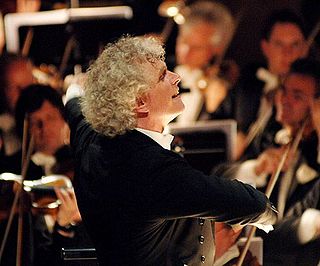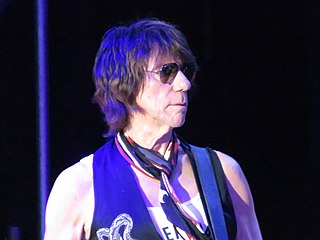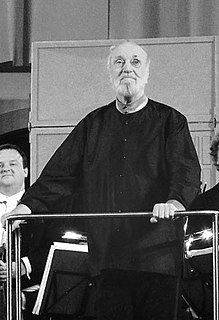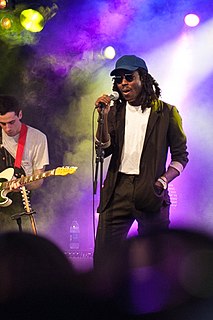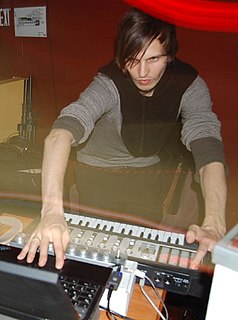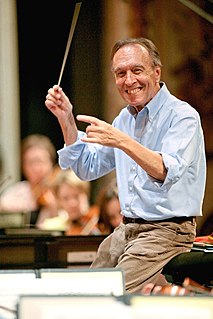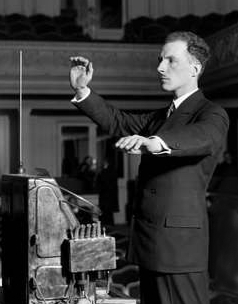A Quote by Simon Rattle
Related Quotes
I always maintain that playing in an orchestra intelligently is the best school for democracy. If you play a solo, the conductor and everybody in the orchestra follows you. Then, a few bars later, the main voice goes to another instrument, another group, and then you have to go back into the collective [sound]. The art of playing in an orchestra is being able to express yourself to the maximum but always in relation to something else that is going on.
The great myth is the manager as orchestra conductor. It's this idea of standing on a pedestal and you wave your baton and accounting comes in, and you wave it somewhere else and marketing chimes in with accounting, and they all sound very glorious. But management is more like orchestra conducting during rehearsals, when everything is going wrong.
The way it works for me is my sight and sound senses are combined. Every sound I associate with a color and every color I associate with a sound... The way I see things is constant streamers across the room, bouncing off from every touch and every sound. Over the years, I've learned what color palates I love most.
I love the sound of snow... You can hear it even if you are only standing on a balcony. [The sound] is only minimal, not even a real noise: a breath, a trifle of a sound. You have the same thing in music: if in the score there is a pianissimo marked that ends in nothing. Up thee you can feel this 'nothing'. With an orchestra it is very difficult to achieve it. The Berlin Philharmonic manage it sometimes.
